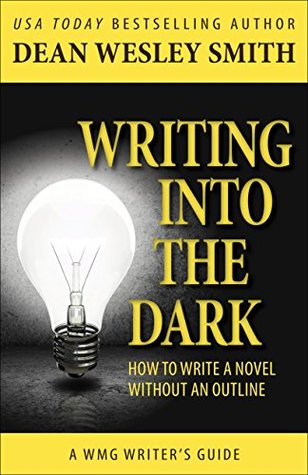More on this book
Community
Kindle Notes & Highlights
But eventually, if you are going to be around for a long time and writing, you need to feed the reader part of your brain and just write for fun.
The only purpose of the critical voice in creative writing is to stop you.
The fearless writers contain their critical voices and write what they love, what moves them.
Writing without critical voice turned on, just writing to tell myself a story, is like reading. The process is wonderful and I enjoy the journey.
Truth: When you are writing new words, you are never wasting your time.
Practice. There, I said it.
Truth: The biggest waste of time in writing is rewriting. Period.
Rule #1: You must write. To do that, just that simple thing, you must overcome critical voice in many aspects. Rule #2: You must finish what you write. Critical voice will keep you from finishing with a thousand tricks. If a story or novel isn’t
done, it can’t be shown and thus can’t cause you any (imaginary) harm. Rule #3: You must refrain from rewriting unless to editorial demand. Critical voice uses the myth of rewriting to make sure nothing will ever be “good enough” and ready to show anyone. Rule #4: You must put your work on the market. Critical voice can think of a thousand ways to make you afraid of the repercussions of mailing or indie publishing your work. Rule #5: You must keep your work on the market until it sells. Critical voice does wonders when you get rejections from an editor, and can stop you from putting the work
...more
Write the next sentence. And then write the next sentence.
You must have a character in a setting.
Depth is caused by having a character be firmly in a setting with opinions and all five senses and emotions about the setting.
Take any character and put the character in a setting. Any character. Any setting. Then climb into the character’s head and park your butt there and don’t allow yourself to type one word that doesn’t come from the character’s opinion or sensory feelings or emotions. Stay parked inside that character’s head. And let the character (and the reader) experience the story.
You must learn how to be unstuck in time in your book.
You must fix everything as you go because there will be no second chance, no second draft, no rewrite.
All problems your creative voice thinks of MUST BE FIXED AT ONCE. You are writing in creative voice. Stay in creative voice and fix the issues the creative voice comes up with instantly.
There is no rule that says you must write your book like a reader is going to read it. None.
But even if you start with word one on a novel and write lineal forward, kill your fear of jumping out of the book and be like a floating god over the characters and the path of the book and let your subconscious have that freedom.
On that yellow legal pad I mark the chapter number, the viewpoint character, what happened in the chapter (one-line summary) and how the chapter ended.
—Entertain Yourself You are a reader, so write into the dark to entertain yourself. You are writing the story for yourself.
—Enjoy the Uncertainty As a reader, you pick up the book and don’t know the story or the ending. You are reading the book for the journey. There is uncertainty in that journey. When writing into the dark, there is uncertainty in the journey as well. Enjoy it. Welcome it.
—Write the Book You Want to Read If you love a certain type of book or wonder why you haven’t seen a certain type of book you used to love, write it. Back to the first point. Entertain yourself.
—Never Write for Anyone But Yourself Basically, stop writing to market. If you entertain yourself, enjoy the uncertainty, and write the books you want to read, writing into the dark is a joy.


